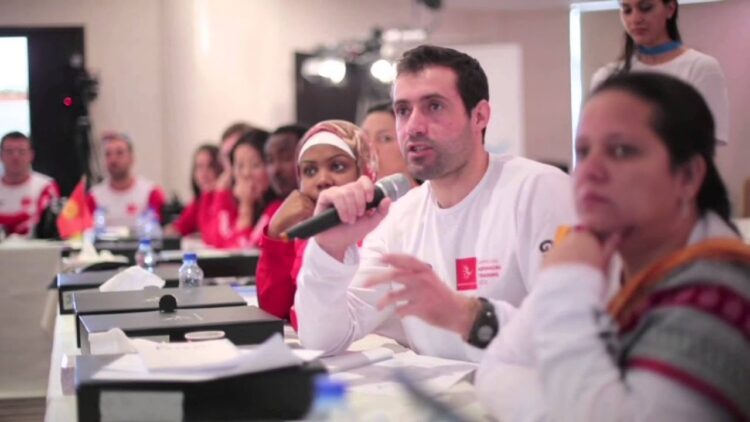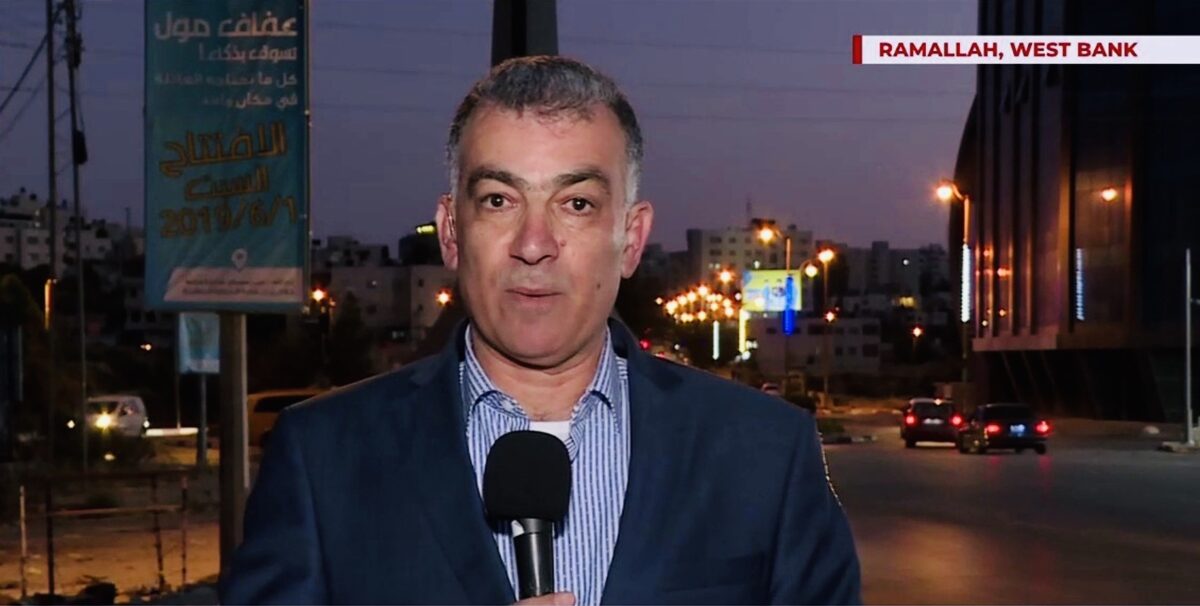Most Palestinians in the West Bank support a two-state solution, despite the glaring absence of peace talks between Israel and the Palestinian Authority, say the leaders of two Palestinian non-governmental organizations.
Nidal Foqaha and Mohammed Asideh, both residents of the West Bank town of Ramallah, conveyed this message at a webinar on January 31 sponsored by the Toronto branch of Canadian Friends of Peace Now.
Foqaha is the director-general of the Palestinian Peace Coalition, a non-profit group which seeks to resolve the Palestinians’ long-running conflict with Israel through non-violent means. Asideh is the projects director of Ziman Palestine, a grassroots youth organization which aims to build a more democratic and pluralistic Palestinian society.
In Foqaha’s estimation, 49 percent of Palestinians living under Israeli military rule back the concept of two states for two people, while only 10 percent favor a one-state solution. “Palestinians are looking for a better future,” he said, noting that the Israeli and Palestinian peace camps enjoy “international legitimacy.”
According to Asideh, 78 percent of Palestinians in the West Bank back a two-state solution. The comparable figure in the Gaza Strip is 48 percent, he said.

Asideh contended that Prime Minister Benjamin Netanyahu’s right-wing government is “killing the chances for peace.” He did not elaborate.
Foqaha expressed optimism that the United States will adopt a more balanced policy now that Joe Biden has replaced Donald Trump as president. He is confident the Biden administration will restore financial aid to the Palestinians, reopen the U.S. consulate in East Jerusalem, and return to its previous position of viewing Israeli settlements in the West Bank as a violation of international law and an obstacle to peace.
“We believe Biden can do this,” he said.
They were asked whether they support the right of Palestinian refugees and their descendants to return to their former homes in what is now Israel.
From a personal point of view, Asideh said, he endorses the concept. If Jews in the Diaspora have a right to return to what he called the “Promised Land,” Palestinians should have the same right. And this issue should be an integral component in future negotiations.
To Foqaha, the right of return of Palestinians to a future Palestinian state is non-negotiable. Absent this proviso, Palestinians would be hard-pressed to sign a peace treaty with Israel, he said.
Foqaha said that a certain proportion of Palestinian refugees should be permitted to resettle in Israel. “We’re not calling for the return of six million refugees to Israel,” he quickly added. Israel should be able to “cope” with the number of refugees he thinks should be admitted, he said.
Asserting he was not trying to dictate the composition of Israel’s population, Foqaha said, “It’s not our business to decide what kind of a state Israel should be.”
They were also asked why the Palestinians insist on establishing the capital of a Palestinian state in eastern Jerusalem when that city is not mentioned even once in the Koran, the Muslim holy book.
Foqaha replied that Palestinians regard Jerusalem as their most important city from a political, social, economic and religious perspective. Asideh dismissed the question altogether, saying it is irrelevant whether Jerusalem is cited in the Koran.
